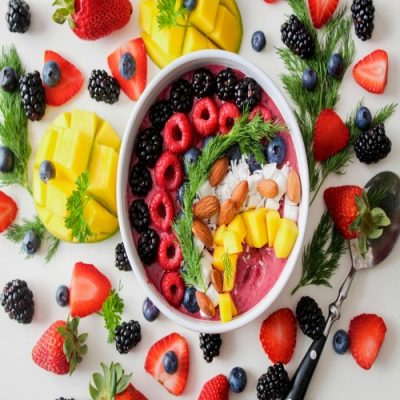Inflammation produces free radicals, the cell-damaging molecules that are formed in response to toxins and natural bodily processes. The synovium (the cushion between knee joints) is as prone to free-radical damage as the skin, eyes, or any other body tissue.
Antioxidants protect the body from free radicals. Older research from the Proceedings of the National Academy of Sciences and Clinical Rheumatology has shown that certain antioxidants may help prevent arthritis, slow the progression of arthritis, and relieve pain. Being at a healthy weight is a critical component to managing OA of the knees.


Avoiding extra body fat doesn’t just take weight off your knees. Body fat is metabolically active, so it’s capable of producing hormones and chemicals that actually increase levels of inflammation.
Try these calorie-controlling strategies:
- Dine in instead of out
- Eat smaller portions
- Avoid buying high-calorie foods
- Fill up half your plate with produce
Tip: Try eating low-calorie soups as a starter to control hunger.
The antioxidant vitamin C is necessary for cartilage development. A lack of vitamin C can lead to weakened cartilage and increased OA symptoms.
Include these items in your shopping cart:
- tropical fruits such as papaya, guava, and pineapple
- citrus fruits such as oranges and grapefruit
- Musk-melon/cantaloupe
- strawberries
- kiwi
- raspberries
- cruciferous vegetables such as cauliflower, broccoli, and kale
- bell peppers
- tomatoes
Research is mixed about vitamin D, but some studies in Arthritis and Rheumatology show that vitamin D can help prevent the breakdown of cartilage and decrease the risk of joint space narrowing.
While absorbing sunlight before applying sunscreen is your best source of vitamin D, you can also enjoy these vitamin D–rich foods:
- seafood such as wild-caught salmon, cod, sardines, and shrimp
- fortified milk
- eggs
Look for other foods fortified with vitamin D or calcium, such as:
- orange juice
- breakfast cereals
- tofu
- yogurt
Beta carotene is another powerful antioxidant that helps destroy free radicals before they can cause excessive damage to joints. Beta carotene is easy to identify because it gives fruits and vegetables, such as carrots, their bright orange color. Other excellent sources include:
- cruciferous vegetables such as cauliflower,cabbage and broccoli.
- greens such as fenugreek and spinach.
- sweet potatoes
- pumpkin
- musk melon
- peppermint leaves
- tomatoes
The healthiest fats for people with OA or other inflammatory disorders are omega-3 fatty acids. While some foods increase levels of inflammation in the body, omega-3s actually work to decrease inflammation by suppressing the production of cytokines and enzymes that break down cartilage.
Foods with the highest amount of omega-3 fatty acids are:
- salmon, either wild, fresh, or canned
- herring
- mackerel, but not king mackerel
- sardines
- anchovies
- rainbow trout
- Pacific oysters
- omega-3-fortified eggs
- ground flax seed and flaxseed oil
Bioflavonoids such as quercetin and anthocyanidins are both forms of antioxidants. The anti-inflammatory effects of quercetin may be similar to those of nonsteroidal anti-inflammatory drugs (NSAIDs) such as aspirin and ibuprofen .
Good sources of quercetin include:
- red, yellow, and white onions
- cherry tomatoes
- broccoli
- blueberries
- black currants
- cocoa powder
- green tea
- apricots
Some spices have anti-inflammatory effects, too. Among the most promising are ginger and turmeric.
A study cited in the journal Alternative Medicine Review has shown that curcumin may help osteoarthritis by suppressing inflammatory body chemicals. Curcumin is a major active component of turmeric.
It’s clear that the best strategies for keeping symptoms of OA of the knee at bay are to:
- lose weight if you’re overweight
- color your plate with fruits and vegetables
- enjoy fish, nuts, and healthy oils
- keep your body in motion
Your knees — and your waistline — will thank you.

